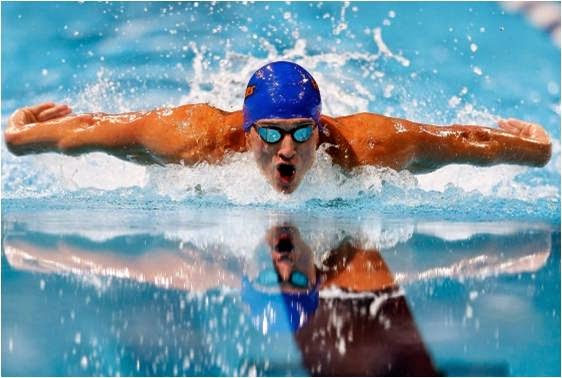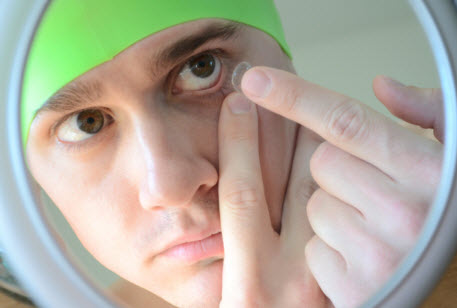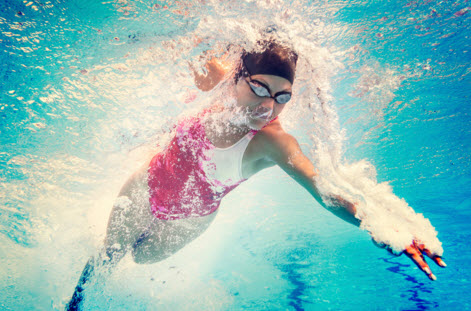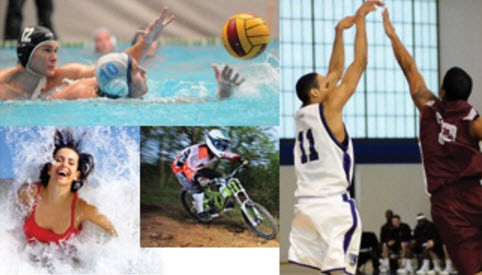Swimming with contact lenses should be avoided whenever possible to prevent bacterial contamination of your eyes. Swimming with contact lenses can cause eye infections, irritation and potentially sight-threatening conditions such as a corneal ulcer. Contact lenses should not be exposed to any type of water, including water in swimming pools and tap water, oceans, lakes, hot tubs and showers. Water can be home to dangerous microbes and countless viruses. One of the most serious is Acanthamoeba organism, which can attach to contact lenses and cause the cornea to become inflamed and infected. This condition, called Acanthamoeba keratitis, is fully associated with wearing contact lenses while swimming and can cause vision loss or require the corneal transplant to recover lost vision if not treated early enough.
Can You Swim With Contact Lenses?
If one is going to swim while wearing contact lenses, the best way to reduce one’s risk of eye infection and irritation is to wear waterproof swim goggles. In addition to protecting your eyes from waterborne contaminants, swim goggles decrease the risk of your contacts dislodging from the eyes.
Prescription swimming goggles are another great option. Prescription goggles are custom-made to correct refractive errors, just like contact lenses or eyeglasses, enabling you to see underwater without any of the risks associated with swimming with contact lenses.
Some brands of swim goggles come in ready-made prescription versions as well. While they can be an option for you, they do have drawbacks. For instance: they do not correct astigmatism; they come in only the most common prescription power and both lenses have the same prescription while many people’s eyes don’t. Another advantage of wearing swim goggles is that you can choose UV-protective goggles to avoid sun damage to your eyes.
Types of Contact Lenses for Water Sports
When choosing the best type of contact lenses for sports, various factors need to be taken into account, including the length of time it takes to play, physical and the environment demands, such as body contact and extreme body and eye movements.
Soft lenses are generally considered the best contact lenses for the sport as they move less on the eyes than GP contact lenses and are less likely to be dislodged. Disposable contact lenses offer many advantages. Many sports are played in dirty environments with potential for lens contamination and handling problems. Disposable contact lenses are discarded after each use and are particularly suited to part-time wear. They are also convenient, as cleaning solutions are not needed. If re-usable contact lenses rather than daily disposable contact lenses are worn but not used every day, do not forget they need to be cleaned and disinfected after each use.
The most complicated is to choose prescription contact lenses for water sports. In these cases it is necessary to take into account various circumstances, to consider the character of particular sport, the experience of the sportsmen with contact lenses, their demands, and the length of usage in the water.
Contact lenses for Swimmers
The easiest choice is for the short-distance swimmers, who generally use swim glasses that protect the eyes. They can use the same contact lenses as during the day.
With long-distance swimmers, we must choose the prescription contact lenses with the highest quality because the lenses can not be taken out in the case of some difficulties and also when using protective swim glasses, microclima with lower oxygen supply is formed. The best for these swimmers is to use one-day contact lenses.
Contact lenses for Divers, Water poloists, and Aquabells
With water poloists, divers and aquabells there is a greater risk of the contact lenses to wash out of the eyes because of the character of the performance. In addition, water with unwanted chemical substances is getting into the lens. These substances can remain in the lenses for quite a long time and they can make the wearing of the contact lenses very unpleasant and also shorten the lifetime of the lenses. For these water sports it is not recommended to wear contact lenses with high water content and bigger middle thickness.
Under the influence of the water environment we can observe instability of the sight with all contact lenses with high water content. Specifically, for water sports it is better to use tighter lenses, but they have to be designed for sports only and for short-term use. When using prescription contact lenses in water, doctors recommend to squirt a bit of water into the eyes before going swimming, close the eyes, rub it gently, which adjusts the lacrimal coating. This causes the lenses to sit better in the eyes and lowers the risk of it to be washed out.
To fit prescription contact lenses for sports is not easy and every sportsman, who is a wearer of contact lenses, should seek out a renowned optometrist. Under good guidance one can fully utilize the characteristics and features of contact lenses. India’s leading online eyewear store, Lenspick.com offers a huge range of contact lenses from various renowned brands available at reasonable price.
Image Credits: ortho-k.com.au, 3.bp.blogspot.com, 1800contacts.com
